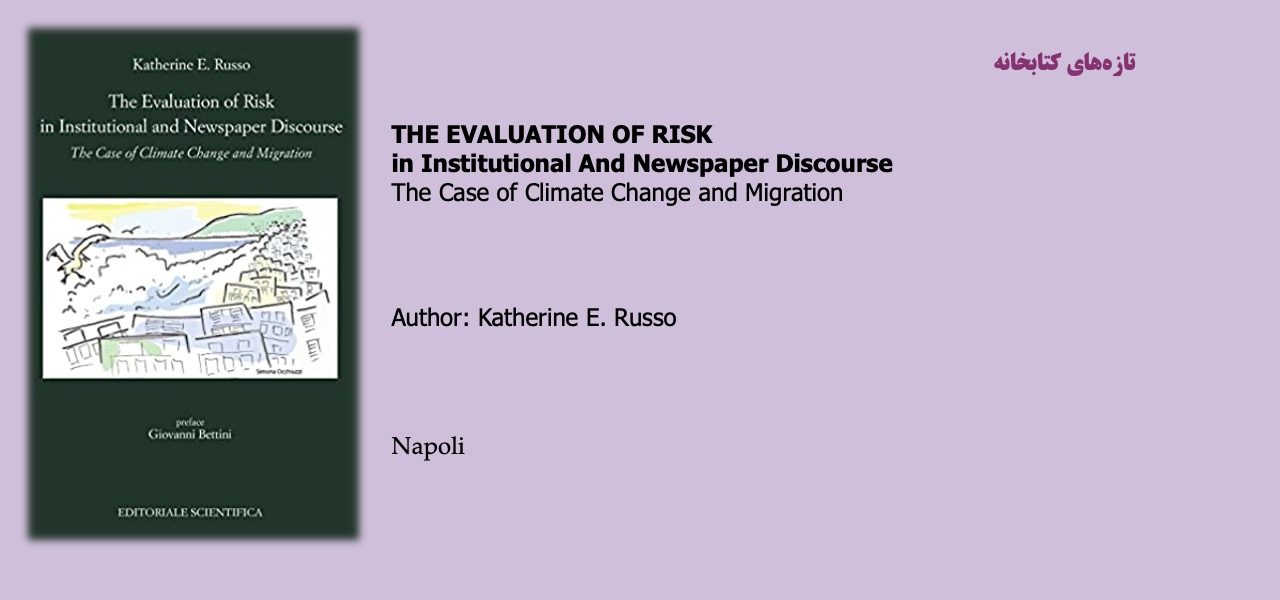THE EVALUATION OF RISK

in Institutional And Newspaper Discourse
The Case of Climate Change and Migration
In this volume, Katherine E. Russo offers an important contribution to currents debates in the humanities and social sciences that explore how climate change is understood, represented, communicated, and thereby governed. The tasks that this rapidly expanding field of enquiry faces are as salient as thorny. Climate change has challenged many settled understandings in politics, economy, history and culture (Chakrabarty, 2009), resulting at times ‘unthinkable’. Amitav Ghosh’s recent volume The Great Derangement (۲۰۱۶) offers an illustrative example of how complicated it has been to signify (and let alone act upon) global warming in many cultural, political, and economic contexts. Ghosh’s monograph dissects how climate change has been an almost intractable subject for literature, exposing the inability by most contemporary literary production to make climate change a central character in their narration. More broadly, the inscription of climate change in societal imaginaries, representations and practices has been a highly contentious matter, mediated through complex interactions with broader historical, cultural and political relations (Hulme, 2017).
مطالب مرتبط

کتاب تمرین درمان شناختی – رفتاری برای مشکلات سلامت روان
۱ / اردیبهشت / ۱۴۰۴

درآمدی بر روانشناسی خرد
۱ / اردیبهشت / ۱۴۰۴

سرشت – چگونه سیمکشی مغزهای ما هویت ما را تعیین میکنند؟
۱ / اردیبهشت / ۱۴۰۴

